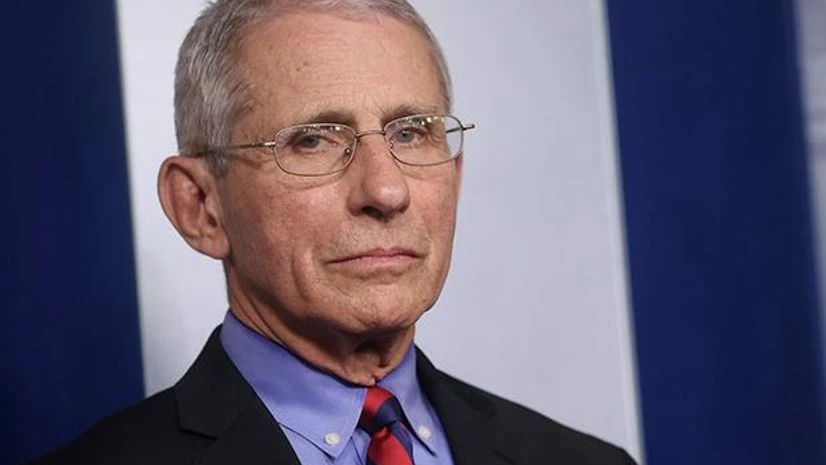America's top infectious disease specialist Dr Anthony Fauci on Thursday said his country is eager to involve Indian investigators in global clinical trials to evaluate the safety and efficacy of COVID-19 therapeutics.
The National Institute of Allergy and Infectious Diseases has a long history of collaboration with its counterpart agencies in India, Dr Fauci said during a conversation organised by the US-India Strategic and Partnership Forum.
Under the long-standing Indo-US vaccine action programme, we will continue to work with India on research related to SARS-CoV-2 (Severe Acute Respiratory Syndrome Coronavirus 2) vaccines. We also are eager to involve Indian investigators in sites in global clinical trials to evaluate the safety and efficacy of various COVID-19 therapeutics, he said.
The partnerships between the NIH and India's Department of Biotechnology as well as what the Indian Council of Medical Research have helped produce important scientific and public health discoveries in the past.
I am confident they will continue to do so in the future. India's contributions to global scientific knowledge are well known to all. With strong governmental support and a vibrant biopharma private sector, this knowledge already is yielding solutions to COVID-19 prevention and care, Dr Fauci said.
Also Read
India's Ambassador to the US Taranjit Singh Sandhu said as India ramps up vaccine production to cater to its needs and those of the world, it relies on the support of the United States in ensuring raw materials and component items are available in good supply.
Vaccinating the world is our best bet against another wave of the pandemic, and the ideal way to speed economic recovery, he said.
Observing that India-US health collaboration is not new, he said under the longstanding Vaccine Action Programme between both nations, they developed a vaccine against rotavirus, which causes severe diarrhea in children.
Indian companies have also manufactured, highly cost-effective HIV drugs for use in African countries, building on cooperation between US organisations and the private sector, he said.
Looking ahead, we need to invest in preparing for the future. Future global resilience will depend on how well prepared we are in dealing with future pandemics. We need to work to further expand our bilateral programmes in areas such as epidemiology, digital health and patients' safety to tackle communicable, and non-communicable diseases and improve infectious disease modelling, prediction and forecasting.
Similarly, the sharing of clinical expertise, standards, and experiences of hospitals, in the management of infectious diseases, especially COVID-19, would add to the knowledge base, Sandhu said.
I think it's important to understand when the US went through a crisis last year, it was India which kept up to support the US from critical medicine. And India is going through his own challenges us stepped up. So, it is a reciprocal partnership, USISPF president Mukesh Aghi said.
Sandhu said last year, as the pandemic hit, India ensured the integrity of health supply chains, providing essential medicines to the US.
This year, when the US supported India during the second wave, President Biden recalled India's help. Companies such as Gilead and Merck present here today have been critical in supplying essential medicines to India which has helped us fight the pandemic and saved innumerable lives, he said.
(Only the headline and picture of this report may have been reworked by the Business Standard staff; the rest of the content is auto-generated from a syndicated feed.)

)
